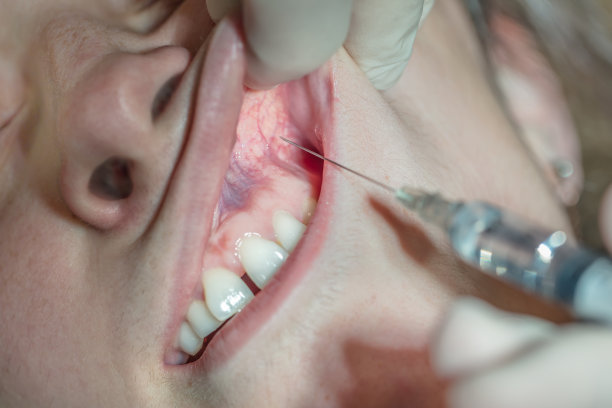Understanding Periodontal Disease Prevention and Management for Optimal Oral Health and Wellbeing
Summary: Periodontal disease, a common yet serious oral health issue, affects millions worldwide and can lead to substantial complications if left untreated. This article provides an in-depth exploration of the prevention and management strategies necessary for maintaining optimal oral health and overall wellbeing. We will delve into understanding the causes and risk factors of periodontal disease, highlight effective preventive measures, explore treatment options available, and examine the role of professional dental care in long-term management. By addressing these critical aspects, we aim to equip readers with the knowledge necessary to safeguard their gums and teeth, ensuring both aesthetic appeal and health.
Understanding Causes and Risk Factors

The first step in preventing periodontal disease is understanding its causes and risk factors. Periodontal disease is primarily caused by the accumulation of plaque, a sticky film of bacteria that forms on teeth. When not removed through proper dental hygiene, plaque can harden into tartar, which further aggravates gum inflammation and infection.
Key risk factors for developing periodontal disease include smoking, genetic predisposition, and certain medical conditions such as diabetes. Smokers are more likely to develop gum disease due to the negative effects of tobacco on blood flow and gum health. Additionally, individuals with a family history of periodontal disease may have a heightened risk, highlighting the role of genetics in oral health.
Other contributing factors include hormonal changes, especially during puberty, menstruation, and pregnancy, which can make gums more sensitive. Poor nutrition and deficiencies in essential vitamins can also impair gum health, emphasizing the importance of a balanced diet for periodontal disease prevention.
Effective Preventive Measures to Implement
To maintain optimal oral health and prevent periodontal disease, individuals should adopt effective preventive measures. Regular brushing and flossing are essential. Its recommended to brush teeth at least twice a day with fluoride toothpaste and to floss daily. This routine helps remove plaque before it calcifies and leads to more significant oral health concerns.
Additionally, incorporating antibacterial mouthwashes can aid in reducing plaque and bacteria levels in the mouth. Mouthwashes with chlorhexidine or essential oils can provide added protection by limiting bacterial growth, further promoting gum health.
Regular dental visits for professional cleanings and check-ups are also crucial. Dental professionals can remove tartar buildup and provide tailored advice on improving oral hygiene practices. They can identify early signs of periodontal disease and implement timely interventions, making routine dental care an integral component of preventing oral health problems.
Exploring Treatment Options for Periodontal Disease
When periodontal disease occurs, prompt treatment is vital to prevent further complications. The first line of treatment typically involves non-surgical methods, such as scaling and root planing. This professional cleaning removes plaque and tartar from the tooth surface and smooths the roots to promote healthier gum attachment.
If non-surgical treatments fail to improve periodontal health, surgical options may be necessary. Procedures such as flap surgery, which involves lifting back the gums to remove tartar, and bone grafts, which rebuild lost bone structure, can restore gum health and support teeth effectively.
Moreover, advancements in laser treatments provide a less invasive option for managing periodontal disease. Lasers can precisely target infected gum tissue, reducing the discomfort associated with traditional surgical procedures and leading to shorter recovery times for patients.
The Role of Professional Dental Care
Professional dental care is pivotal in both the prevention and management of periodontal disease. Dentists not only provide vital treatments but also educate patients on effective oral hygiene practices tailored to their specific needs. Comprehensive exams and cleanings help identify potential issues before they escalate, promoting proactive care.
Periodontists specialize in diagnosing and treating periodontal disease, offering advanced solutions for patients suffering from advanced gum disease. They perform deep cleaning procedures and surgical interventions, ensuring that patients can regain and maintain optimal oral health.
Moreover, regular follow-ups with dental care providers encourage adherence to recommended home care routines and facilitate ongoing monitoring of periodontal health. A strong partnership between patients and dental professionals fosters a supportive environment that emphasizes long-term oral health and wellbeing.
Summary:
Understanding the multifaceted aspects of periodontal disease, including its causes, prevention, treatment options, and the vital role of professional care, helps in maintaining optimal oral health. By being proactive and informed, individuals can significantly reduce their risk of periodontal disease and enjoy a healthy, confident smile.
This article is compiled by Vickong Dental and the content is for reference only.



